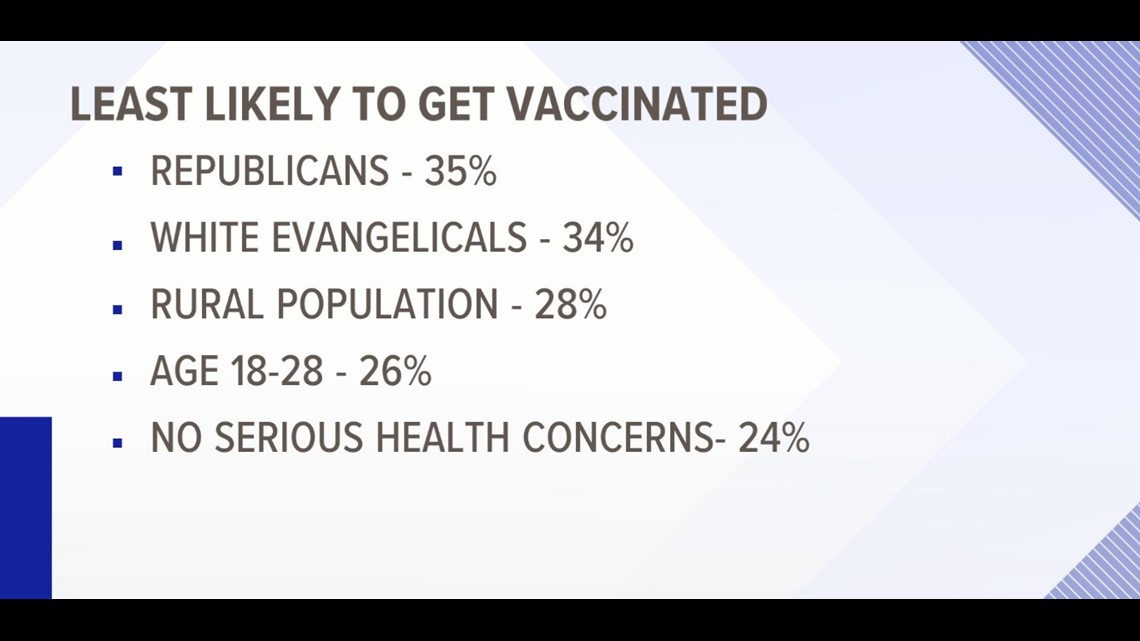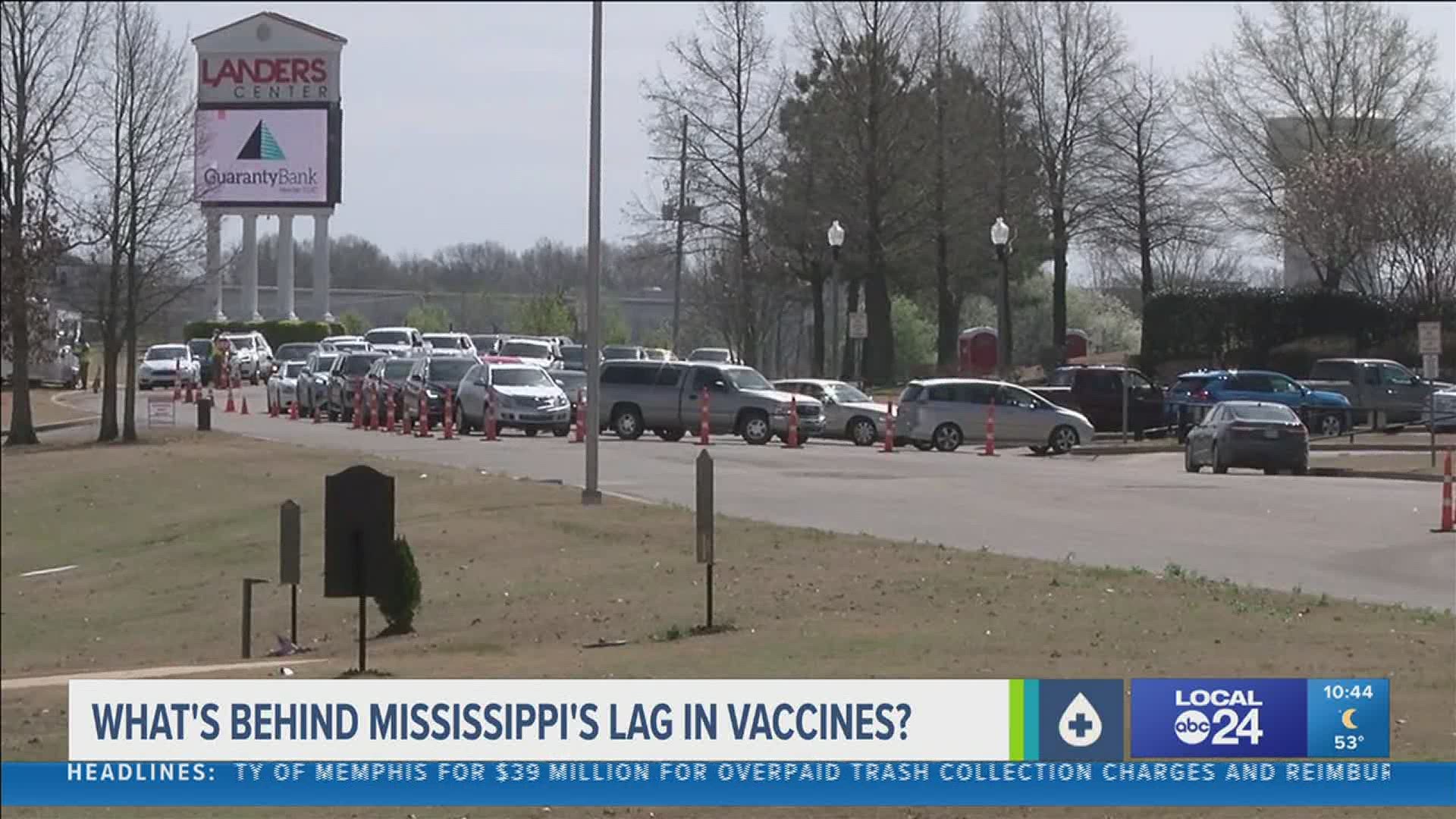SOUTHAVEN, Miss — On Good Morning America this week, Governor Tate Reeves said the vaccine rollout has been a success in Mississippi, despite the state ranking among the lowest for fully vaccinated. He said the reason for the low demand is because of "hesitancy" among certain groups.
"We have a very large African American population and we have a lot of rural people in our state. Both of those categories of individuals are less likely to take the virus [vaccine]," Reeves said.
A national study showed white Republican males and white Evangelicals to be the groups least likely to get vaccinated.
Reeves also claimed the rates are due to the lack of vaccine knowledge in the rural and Black communities.
"We’ve got to educate them and we’re working really hard to do so," Reeves said.
DeSoto County NAACP President Robert Tipton, Jr. does not agree with what Reeves has said about Mississippi's Black community.
"It’s a false narrative that we don’t understand what’s going on," Tipton said. "We have full knowledge about this vaccine."
According to the Mississippi State Department of Health, Black people in the state make up only 31% of the doses administered. Tipton said that is because there are not enough locations statewide.
"It’s not that we need to be educated on it," Tipton said. "Where they distribute the vaccine needs to be more accessible."


While more local pharmacies, like Walgreens and Walmart, are distributing doses the only major vaccine site in DeSoto County is at the Landers Center. Tipton said, for many in minority communities, transportation is an added barrier to getting their shot.
Tipton said while the Black community has had a distrust of the healthcare system, that is not the case this time.
"While we don’t know all about it, we do know as of yet it has proven not to kill anybody," Tipton said. "So, we’d rather take the vaccine than not.
To eliminate disparities in minority and rural communities, MSDH is currently looking for local partners to bring more access to the vaccine.
“The Office of Health Equity addresses disparities primarily in Hispanic, Black, Vietnamese and rural populations. We identify the disparities and gaps that exist and find ways to engage with the communities to get them what they need. We have been providing testing opportunities, giving out PPE and promoting health education in these communities. Vaccination is our next step in reducing the impact of COVID-19,” said Victor D. Sutton, Ph.D., MPPA, Director of the Office of Preventive Health and Health Equity.

